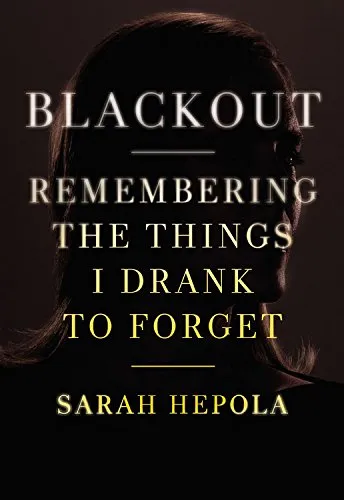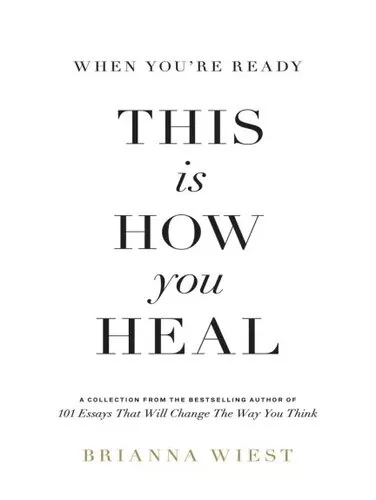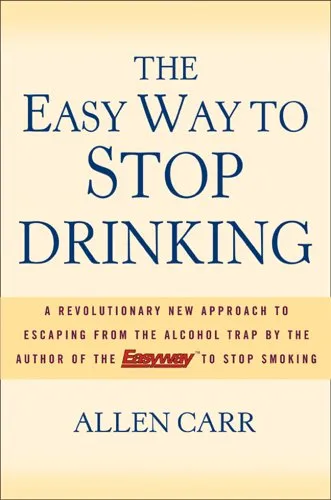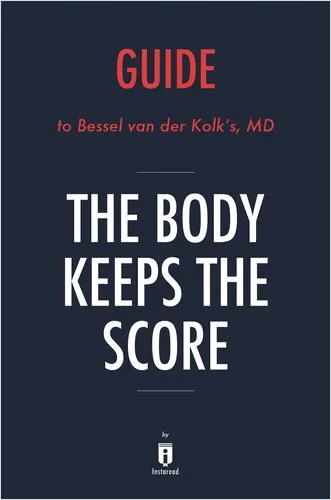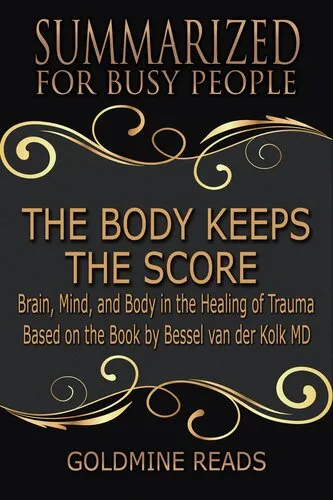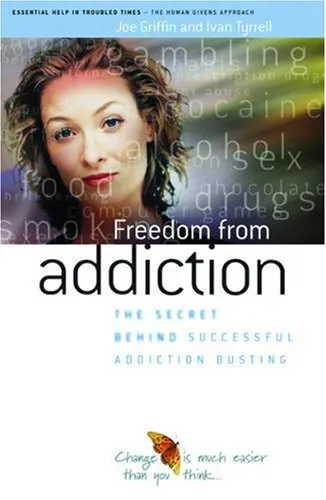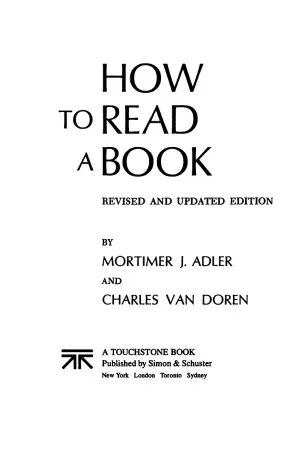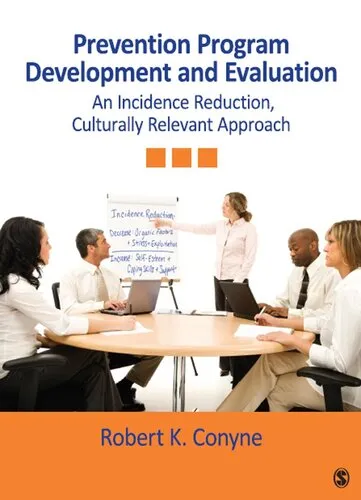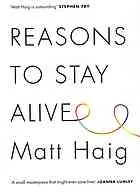Blackout: Remembering the Things I Drank to Forget
4.4
بر اساس نظر کاربران

شما میتونید سوالاتتون در باره کتاب رو از هوش مصنوعیش بعد از ورود بپرسید
هر دانلود یا پرسش از هوش مصنوعی 2 امتیاز لازم دارد، برای بدست آوردن امتیاز رایگان، به صفحه ی راهنمای امتیازات سر بزنید و یک سری کار ارزشمند انجام بدینکتاب های مرتبط:
معرفی کتاب: Blackout: Remembering the Things I Drank to Forget
کتاب Blackout: Remembering the Things I Drank to Forget اثری از من، سارا هپولا، نگاهی عمیق و صادقانه به مشکلات ناشی از مصرف الکل و پیامدهای آن بر زندگی شخصی، حرفهای و احساسی فرد دارد. این کتاب روایتگر سالهایی است که من با اعتیاد به الکل دستوپنجه نرم میکردم و با صداقت و شجاعت، تجربیات تلخ و درسهای عمیقی که در این مسیر یاد گرفتم، به اشتراک میگذارم. Blackout اثری است که نه تنها از آسیبها و چالشها صحبت میکند، بلکه نور امید را برای بازگشت، بازسازی و رهایی به خوانندگان نشان میدهد.
خلاصهای از کتاب
این کتاب سفری است به درون ذهن و زندگی من در دوران شدیدترین اعتیاد به الکل. من داستانهایی از شبهایی روایت میکنم که در آنها blackout یا خاموشی الکلی را تجربه کردم؛ لحظاتی که به معنای واقعی کلمه بخشی از زندگیام از ذهنم پاک شده بود. این خاموشیها تنها نتیجه مصرف بیش از حد الکل نبودند بلکه ناشی از فرار من از خودم، مشکلاتم و دغدغههایم بودند. اما این داستان فقط درباره سقوط نیست. من همچنین از سفر بازگشتم به سمت هوشیاری و بازسازی زندگیام میگویم. این داستان درباره قدرت انتخاب، پذیرش شکست، و بازسازی است.
درسهای کلیدی کتاب
- خاموشیهای الکلی یا blackout تنها نشانهای از تخریب کامل ذهن نیستند، بلکه زنگ خطریاند برای بازنگری در سبک زندگی.
- اعتیاد غالباً پاسخی به نوعی از درد درونی یا احساس خالی بودن است، نه صرفاً یک عادت فیزیکی یا اجتماعی.
- بازگشت به هوشیاری و رهایی از اعتیاد، با وجود دشواری، امکانپذیر است و میتواند به زندگی معنادارتری منجر شود.
- پذیرش شکست و اشتباهات به جای نفی و انکار، اولین قدم برای رهایی محسوب میشود.
نقلقولهای معروف از کتاب
"I loved drinking. I loved the way it made me feel: euphoric, daring, wildly alive. I loved how it soothed my fears."
"Quitting drinking is not about hating alcohol, it's about choosing life."
"We don’t drink to be happy. We drink because we want to be free."
چرا این کتاب اهمیت دارد
کتاب Blackout: Remembering the Things I Drank to Forget برای بسیاری از خوانندگان، نوری بر مسیر تاریکی است که ممکن است در آن گرفتار شده باشند. این کتاب به سوالات مهمی در مورد قدرت الکل، تاثیرات آن بر بدن و ذهن و دلایل روانشناختی اعتیاد میپردازد. علاوه بر این، این کتاب داستانی از انسانیت، توانمندی و بازسازی است. برای کسانی که خودشان یا عزیزانشان با چالشهای اعتیاد دستوپنجه نرم میکنند، این کتاب الهامبخش و تسلیدهنده خواهد بود و به آنها نشان میدهد که هوشیاری و رهایی مسیرهای ممکن و ارزشمندیاند.
Introduction to "Blackout: Remembering the Things I Drank to Forget"
Sarah Hepola’s memoir, "Blackout: Remembering the Things I Drank to Forget," is an unflinchingly honest and deeply personal exploration of addiction, vulnerability, and the untidy path to self-discovery. At once tragic, humorous, and enlightening, the book dives into the devastation wrought by Hepola’s drinking habit and her eventual journey toward sobriety. This is not merely a tale of addiction; it’s a universal human story about denial, shame, courage, and transformation.
With a writing style that is sharp, witty, and sincere, Hepola takes the reader on a journey through her years of excessive drinking, punctuated by frequent memory blackouts. These blackouts are both literal, as in the gaps in her recollection, and metaphorical, representing a fuller picture of how alcohol clouded her ability to live authentically. With equal parts grit and grace, Hepola sheds light on what it means to lose oneself and, importantly, to find oneself again. This celebrated memoir resonates with anyone who has ever grappled with self-doubt, overindulgence, or the search for purpose.
Detailed Summary of the Book
The book opens by capturing the allure alcohol had for Hepola during her younger years. Like many, she associated drinking with freedom, connection, and fun—a way to loosen the confines of an awkward, self-conscious personality. For Hepola, drinking unlocked her confidence, filled her with a sense of boldness, and became inextricably tied to her social and professional identity. However, what begins as casual indulgence spirals into an uncontrollable dependency that steals more than it gives.
Hepola recounts stories of her life being derailed by blackouts—those haunting periods where hours or entire evenings vanish entirely from memory. She writes candidly about the shame and confusion she experienced waking up in strange places, often alongside strangers, with no recollection of how she got there. While these moments are deeply unsettling, Hepola manages to inject humor into her storytelling, finding levity amidst the heavier themes.
Eventually, the cracks in her façade begin to spread, and Hepola comes face-to-face with the harsh realities of her addiction. For years, she had clung to an illusion of control, but a series of personal and professional losses forces her to confront the truth. This moment of reckoning launches her down the rocky road to recovery, where she discovers that sobriety demands far more than merely quitting alcohol—it requires confronting the underlying wounds and fears that fueled her drinking in the first place.
Throughout the memoir, Hepola illustrates the complexities of recovery. It’s not a straight line, but a messy, unpredictable process of trial and error. She grapples with doubts and setbacks, but ultimately finds empowerment in reclaiming her life. By the end of the book, Hepola emerges not as someone who has all the answers, but as someone who has learned to embrace imperfection and live authentically, one day at a time.
Key Takeaways
- Alcohol dependency and blackouts can manifest in ways that are often ignored or normalized in society, but they can have profound consequences on one’s life.
- Sobriety is not just the act of giving up alcohol; it involves confronting and healing from past traumas and fears.
- Recovery is a non-linear process, filled with setbacks and small victories.
- Humor and honesty are critical tools for understanding and dismantling difficult life patterns.
- There is immense power in vulnerability and resilience in starting over, no matter how far one has fallen.
Famous Quotes from the Book
- "It’s amazing how easy it is to lie to yourself under the guise of self-preservation."
- "For a long time, I believed that comfort was the goal. Comfort was the prize. Comfort was the thing it was all about. But it wasn’t. Comfort was killing me."
- "My memory is full of holes, like a torn net that can’t hold anything secure."
- "You don’t realize how much you miss the sound of your own voice until you hear it again."
- "Pain is what we carry in our minds, in our burdens, in our fears—our unwillingness to let it go and move forward."
Why This Book Matters
"Blackout: Remembering the Things I Drank to Forget" is more than a memoir—it’s a cultural touchstone in the conversation around addiction and sobriety. Hepola’s storytelling gives a voice to an often-stigmatized struggle, showing readers that addiction doesn’t look the same for everyone and that vulnerability is a pathway to healing. Her humor, wit, and ability to articulate the raw pain of addiction make this book accessible and heartfelt, resonating with those who grapple with similar challenges or want to understand more about the experience.
Importantly, Hepola emphasizes that recovery is not about perfection. It’s about finding the courage to face oneself, to embrace flaws, and to work every day toward a better life. In a world that often glamorizes drinking, this book is a sobering reminder of the hidden costs and a heartfelt guide to reclaiming one’s narrative.
Whether you’ve faced addiction yourself, love someone who has, or are simply curious about the transformative power of self-discovery, "Blackout" is an inspiring and necessary read.
دانلود رایگان مستقیم
شما میتونید سوالاتتون در باره کتاب رو از هوش مصنوعیش بعد از ورود بپرسید
دسترسی به کتابها از طریق پلتفرمهای قانونی و کتابخانههای عمومی نه تنها از حقوق نویسندگان و ناشران حمایت میکند، بلکه به پایداری فرهنگ کتابخوانی نیز کمک میرساند. پیش از دانلود، لحظهای به بررسی این گزینهها فکر کنید.
این کتاب رو در پلتفرم های دیگه ببینید
WorldCat به شما کمک میکنه تا کتاب ها رو در کتابخانه های سراسر دنیا پیدا کنید
امتیازها، نظرات تخصصی و صحبت ها درباره کتاب را در Goodreads ببینید
کتابهای کمیاب یا دست دوم را در AbeBooks پیدا کنید و بخرید
1466
بازدید4.4
امتیاز0
نظر98%
رضایتنظرات:
4.4
بر اساس 0 نظر کاربران
Questions & Answers
Ask questions about this book or help others by answering
No questions yet. Be the first to ask!
